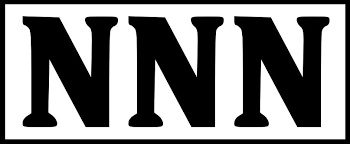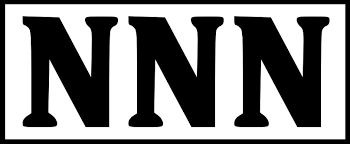Here are the black market exchange rates for the Nigerian Naira (NGN) against various currencies as of Thursday, February 12, 2026:
| Currency | Buy | Sell |
|---|---|---|
| USD | ₦1436.00 | ₦1445.00 |
| EUR | ₦1685.00 | ₦1700.00 |
| GBP | ₦1975.00 | ₦2000.00 |
- USD: The buying rate is 1,436.00 and the selling rate is 1,445.00.
- EUR: The buying rate is 1,685.00 and the selling rate is 1,700.00.
- GBP: The buying rate is 1,975.00 and the selling rate is 2,000.00.
Dollar (USD) to Naira (NGN) Exchange Rate
As of today, Thursday, February 12, 2026, the black market exchange rate for the Nigerian Naira (NGN) against the US Dollar (USD) is as follows:
Dollar (USD) to Naira Exchange Rate
BUYING: 1,436.00
SELLING: 1,445.00
USD to Naira Converter
1 US Dollar (1$) to Naira is .
5 US Dollars ($5) to Naira is .
10 US Dollars ($10) to Naira is .
20 US Dollars ($20) to Naira is .
50 US Dollars ($50) to Naira is .
100 Dollars ($100) to Naira is .
200 Dollars ($200) to Naira is .
300 Dollars ($300) to Naira is .
400 Dollars ($400) to Naira is .
500 Dollars ($500) to Naira is .
600 Dollars ($600) to Naira is .
700 Dollars ($700) to Naira is .
800 Dollars ($800) to Naira is .
900 Dollars ($900) to Naira is .
1000 US Dollars ($1000) to Naira is .
2000 US Dollars ($2000) to Naira is .
3000 US Dollars ($3000) to Naira is .
4000 US Dollars ($4000) to Naira is .
5000 US Dollars ($5000) to Naira is .
10000 Dollars ($10000) to Naira is .
Pound (GBP) to Naira (NGN) Exchange Rate
As of today, Thursday, February 12, 2026, the black market exchange rate for the Nigerian Naira (NGN) against the Pound (GBP) is as follows:
BUYING: 1,975.00
SELLING: 2,000.00
GBP to Naira Converter
1 US Dollar (1£) to Naira is .
5 Great Britain Pounds (GBP) (£5) to Naira is .
10 Great Britain Pounds (GBP) (£10) to Naira is .
20 Great Britain Pounds (GBP) (£20) to Naira is .
50 Great Britain Pounds (GBP) (£50) to Naira is .
100 Great Britain Pounds (GBP) (£100) to Naira is .
200 Great Britain Pounds (GBP) (£200) to Naira is .
300 Great Britain Pounds (GBP) (£300) to Naira is .
400 Great Britain Pounds (GBP) (£400) to Naira is .
500 Great Britain Pounds (GBP) (£500) to Naira is .
600 Great Britain Pounds (GBP) (£600) to Naira is .
700 Great Britain Pounds (GBP) (£700) to Naira is .
800 Great Britain Pounds (GBP) (£800) to Naira is .
900 Great Britain Pounds (GBP) (£900) to Naira is .
1000 Great Britain Pounds (GBP) (£1000) to Naira is .
2000 Great Britain Pounds (GBP) (£2000) to Naira is .
3000 Great Britain Pounds (GBP) (£3000) to Naira is .
4000 Great Britain Pounds (GBP) (£4000) to Naira is .
5000 Great Britain Pounds (GBP) (£5000) to Naira is .
10000 Great Britain Pounds (GBP) (£10000) to Naira is .
Euro (EUR) to Naira (NGN) Exchange Rate
As of today, Thursday, February 12, 2026, the black market exchange rate for the Nigerian Naira (NGN) against the Euro (EUR) is as follows:
BUYING RATE: 1,685.00
SELLING RATE: 1,700.00
EUR to Naira Converter
1 US Dollar (1€) to Naira is .
5 Europian Euro (EUR) (€5) to Naira is .
10 Europian Euro (EUR) (€10) to Naira is .
20 Europian Euro (EUR) (€20) to Naira is .
50 Europian Euro (EUR) (€50) to Naira is .
100 Europian Euro (EUR) (€100) to Naira is .
200 Europian Euro (EUR) (€200) to Naira is .
300 Europian Euro (EUR) (€300) to Naira is .
400 Europian Euro (EUR) (€400) to Naira is .
500 Europian Euro (EUR) (€500) to Naira is .
600 Europian Euro (EUR) (€600) to Naira is .
700 Europian Euro (EUR) (€700) to Naira is .
800 Europian Euro (EUR) (€800) to Naira is .
900 Europian Euro (EUR) (€900) to Naira is .
1000 Europian Euro (EUR) (€1000) to Naira is .
2000 Europian Euro (EUR) (€2000) to Naira is .
3000 Europian Euro (EUR) (€3000) to Naira is .
4000 Europian Euro (EUR) (€4000) to Naira is .
5000 Europian Euro (EUR) (€5000) to Naira is .
10000 Europian Euro (EUR) (€10000) to Naira is .
NOTE
These rates reflect the current market conditions and may vary based on demand and supply dynamics in the black market.
It’s important to note that black market rates can fluctuate frequently due to various factors such as supply and demand, economic conditions, and government policies. Always ensure to engage with reputable dealers when conducting currency exchanges in the black.
Do you have a news tip for NNN? Please email us at editor @ nnn.ng


